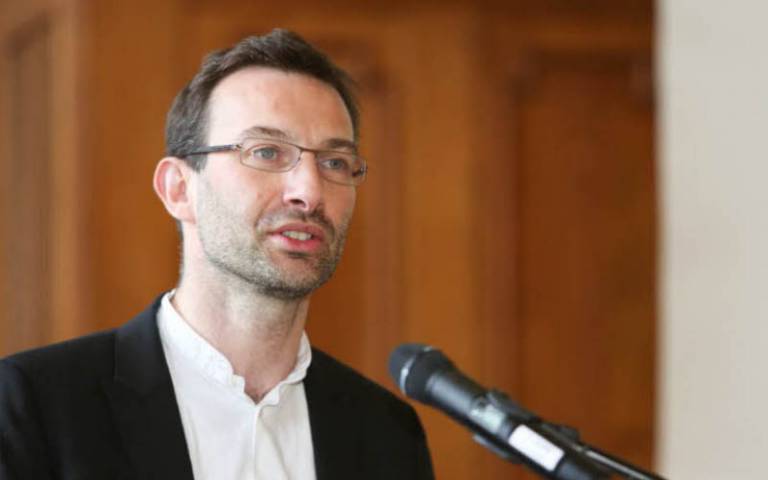More creative, more curious: Nick Midgley on the benefits of gaining Arena Fellowship
Applying for Fellowship helped the Associate Professor in UCL Clinical, Educational and Health Psychology to review his own teaching, and be more open-minded about the task of leadership in education

11 March 2019
UCL Arena Open offers you the opportunity to gain recognition for your work supporting student’s learning with a UCL Arena fellowship, accredited by the Higher Education Academy (HEA).
UCL Arena Open is for all staff at UCL who:
- teach
- supervise
- assess, or
- support students’ learning at UCL.
Nick explains why he applied for UCL Arena Fellowship and how it has helped him:
Which Arena pathway did you follow and where did you hear about it?
I read about the Higher Education Fellowships on the UCL Arena pages, and went along to one of the introductory sessions.
During this session the UCL Arena Centre staff helped me to identify the Senior Fellowship as the pathway that fitted my experience best.
What was your motivation?
Teaching is a large part of what I do, and I've been involved in setting up and running two post-graduate programmes at UCL. So the chance to have a space to reflect on that side of my academic life was quite exciting.
I hoped to learn new things, but also to have the teaching side of my professional activity recognised more formally, as sometimes it can feel as if universities place greater value on research activity.
What was the most useful element?
Meeting with UCL staff from other departments was great, as it gave me an insight on how other people were tackling some similar issues to those I might be struggling with.
I also found that writing the case studies, and doing the reading connected to them, helped me to reflect on my own teaching practice.
How has it changed your teaching?
I think I've become more open-minded about different ways of approaching the task of leadership in university education, for example becoming:
- more creative about assessment
- more curious about how we can best support staff development around teaching, and
- more excited at the prospect of revisiting the curriculum to see how teaching and learning can be improved.
How do you think your students have benefited from you taking part?
The senior fellowship focuses a great deal on how we support others to improve teaching and learning - so I think some of the impact on students has been indirect. For example, taking part has helped me to better support and inspire the teaching staff I am responsible for.
I think my students will also have noticed that my involvement with the Fellowship has made me re-visit issues about how best to incorporate research into teaching, and made me even more interested in working alongside students to improve education at UCL.
When did you do this?
I was lucky enough to have a sabbatical in 2018, and made applying for the Fellowship one of my sabbatical tasks, along with writing up some papers and getting a major grant application completed!
How much of a commitment was it for you?
The actual writing of the application and case studies took about a week.
Although it was hard to carve out the time, I tried to set aside time to work on my application. I did this by:
- attending UCL Arena training sessions
- thinking about what areas of my teaching practice I wanted to write about in the case studies.
It is usually hard to find time to read around a subject, but on sabbatical I was able to do some more extended reading about teaching and learning. This definitely made the process more interesting for me.
How can you apply for Fellowship?
attend introductory session, 'Gaining Fellowship of the Higher Education Academy: initial guidance for all categories'
after you've attended an introductory session, sign up to one of the regular 'Become a Associate Fellow/Fellow/Senior Fellow/Principal Fellow'
(see our Upcoming events calendar for dates - you can filter the calendar by choosing 'Arena and HEA Fellowships' in the Subject filter).
 Close
Close

